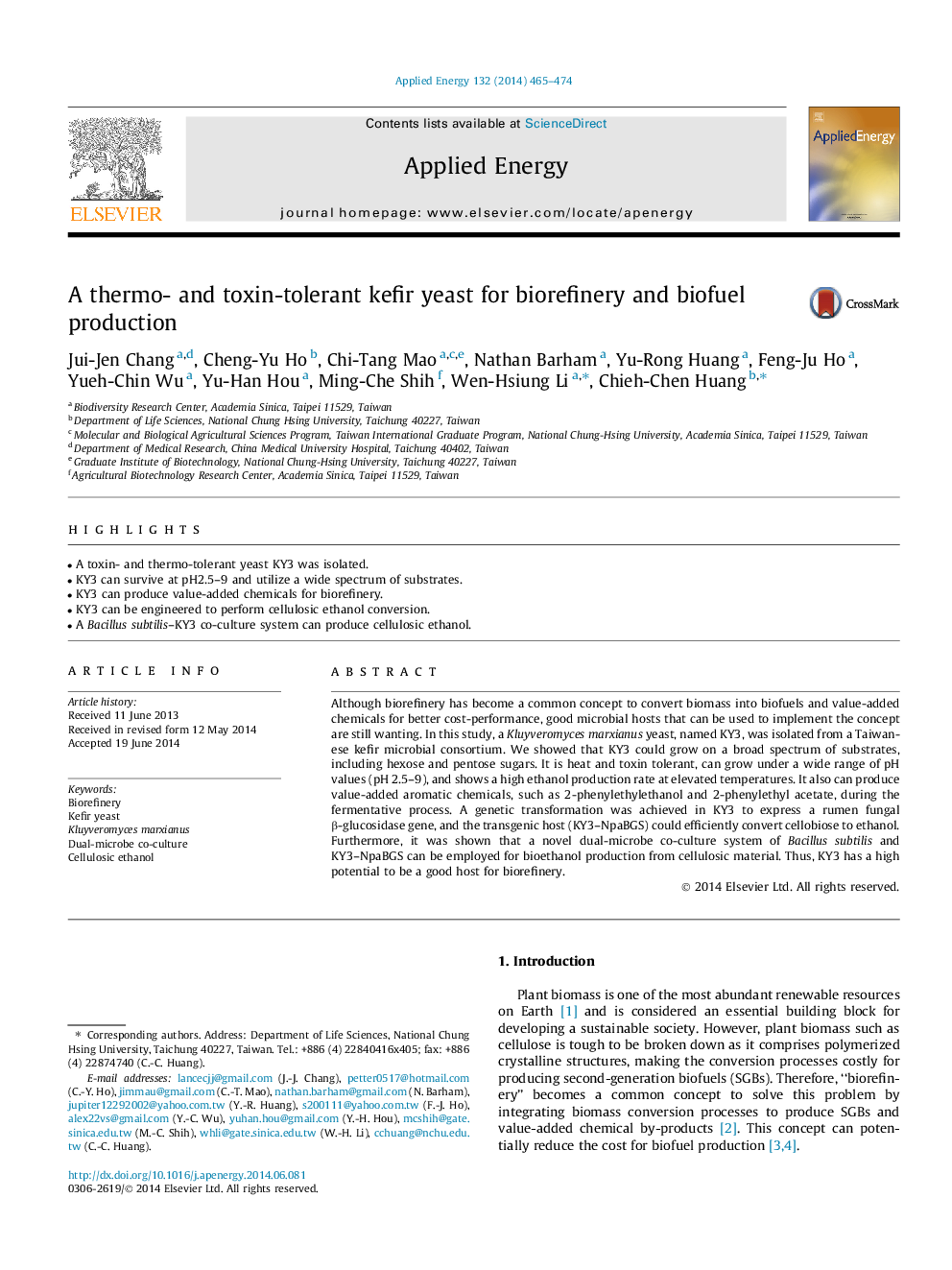| Article ID | Journal | Published Year | Pages | File Type |
|---|---|---|---|---|
| 6689881 | Applied Energy | 2014 | 10 Pages |
Abstract
Although biorefinery has become a common concept to convert biomass into biofuels and value-added chemicals for better cost-performance, good microbial hosts that can be used to implement the concept are still wanting. In this study, a Kluyveromyces marxianus yeast, named KY3, was isolated from a Taiwanese kefir microbial consortium. We showed that KY3 could grow on a broad spectrum of substrates, including hexose and pentose sugars. It is heat and toxin tolerant, can grow under a wide range of pH values (pH 2.5-9), and shows a high ethanol production rate at elevated temperatures. It also can produce value-added aromatic chemicals, such as 2-phenylethylethanol and 2-phenylethyl acetate, during the fermentative process. A genetic transformation was achieved in KY3 to express a rumen fungal β-glucosidase gene, and the transgenic host (KY3-NpaBGS) could efficiently convert cellobiose to ethanol. Furthermore, it was shown that a novel dual-microbe co-culture system of Bacillus subtilis and KY3-NpaBGS can be employed for bioethanol production from cellulosic material. Thus, KY3 has a high potential to be a good host for biorefinery.
Related Topics
Physical Sciences and Engineering
Energy
Energy Engineering and Power Technology
Authors
Jui-Jen Chang, Cheng-Yu Ho, Chi-Tang Mao, Nathan Barham, Yu-Rong Huang, Feng-Ju Ho, Yueh-Chin Wu, Yu-Han Hou, Ming-Che Shih, Wen-Hsiung Li, Chieh-Chen Huang,
